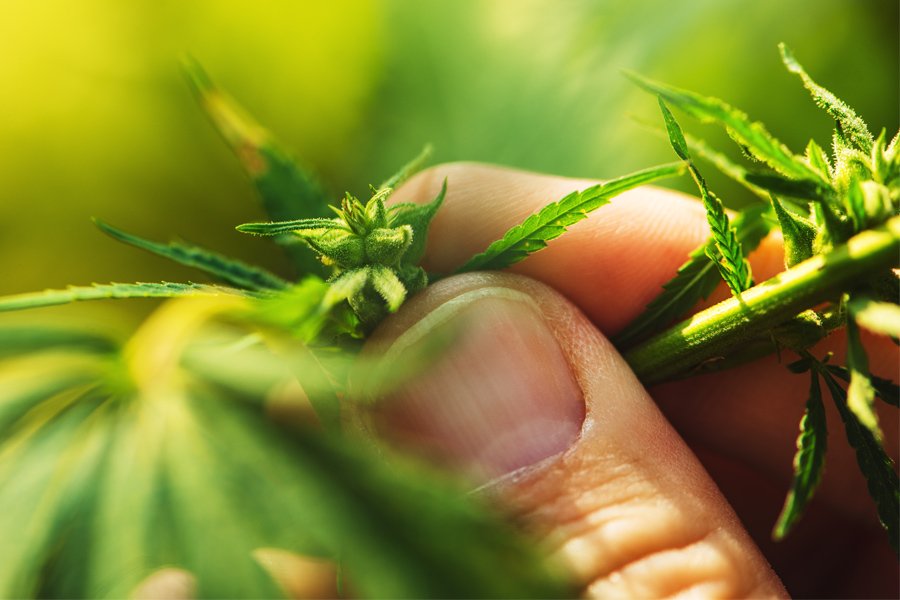
Texas has recently banned the sale and production of Delta-8 THC products, a cannabis compound that has been gaining popularity for its mild psychoactive effects. This ban has raised concerns among hemp businesses and consumers alike, as it threatens the thriving hemp industry in the state. This article will examine the reasons behind the Delta-8 THC ban, its impact on hemp businesses and consumers, and the legal challenges that may arise from it.
What is Delta-8 THC?
Delta-8 THC, or Delta-8-tetrahydrocannabinol, is a psychoactive compound in cannabis plants. It is similar to Delta-9 THC, the main psychoactive component in marijuana, but with a milder effect. Delta-8 THC is derived from hemp plants, which contain low levels of THC, making it legal under federal law. It is often used for its relaxing and pain-relieving properties and is available in various forms, such as edibles, tinctures, and vape cartridges.
Why was Delta-8 THC banned in Texas?
The Texas Department of State Health Services (DSHS) issued a statement on August 2, 2021, stating that Delta-8 THC is a Schedule I controlled substance under state law. The statement cites the Texas Health and Safety Code, which defines a controlled substance as a drug with a high potential for abuse and no accepted medical use. The DSHS claims that Delta-8 THC meets these criteria and should be banned in the state.
The ban on Delta-8 THC products in Texas has been met with backlash from the hemp industry, which argues that the compound is legal under federal law and has therapeutic benefits. Hemp businesses in Texas have threatened to sue the state for banning Delta-8 THC products, as they believe the ban is based on flawed reasoning and will harm their business.
Impact on Hemp Businesses
The Delta-8 THC ban has significant implications on hemp businesses in Texas, as many of them have built their business models around selling and producing Delta-8 THC products. The ban will force them to either discontinue these products or move their operations to other states where Delta-8 THC is legal, and this will result in lost revenue and job losses in the state.
Moreover, the ban may ripple effect on the entire hemp industry in Texas, as it sets a precedent for the state to ban other hemp-derived products. This uncertainty may discourage investors and entrepreneurs from entering the hemp industry in Texas and may lead to a decline in the industry as a whole.
Impact on Consumers
The Delta-8 THC ban also affects consumers who rely on Delta-8 THC products for medicinal or recreational purposes. Many of these consumers have reported that Delta-8 THC helps alleviate symptoms of anxiety, depression, and chronic pain. They argue that the ban will limit their access to a safe and effective alternative to traditional pharmaceuticals.
Furthermore, the ban may drive consumers to purchase Delta-8 THC products from unregulated sources, which could pose health risks. This is because unregulated products may contain harmful contaminants, such as heavy metals, pesticides, or synthetic cannabinoids, that could cause adverse effects.
Legal Challenges
The Delta-8 THC ban in Texas may face legal challenges from hemp businesses and consumer advocacy groups. They argue that the ban is based on flawed reasoning and violates federal law. The 2018 Farm Bill legalized hemp and hemp-derived products, including Delta-8 THC, as long as they contain less than 0.3% THC by dry weight. Therefore, the ban on Delta-8 THC products in Texas conflicts with federal law.
Furthermore, the ban may violate the interstate commerce clause of the US Constitution, which prohibits states from creating barriers to interstate commerce. Since Delta-8 THC products are legal under federal law, Texas may not have the authority to ban them within its borders.
Hemp businesses and consumer advocacy groups may also argue that the ban violates the due process clause of the US Constitution, which requires that laws be clear and precise and not arbitrary or discriminatory. The ban on Delta-8 THC products in Texas appears to be arbitrary and based on flawed reasoning, as Delta-8 THC has therapeutic benefits and is legal under federal law.
Conclusion
The Delta-8 THC ban in Texas poses a threat to the thriving hemp industry in the state and limits consumers’ access to a safe and effective alternative to traditional pharmaceuticals. Hemp businesses in Texas have threatened to sue the state for banning Delta-8 THC products, and consumer advocacy groups may also challenge the ban in court. As the legal challenges unfold, it is important for the state of Texas to consider the potential impact of the ban on the hemp industry and consumers and to engage in a constructive dialogue with stakeholders to find a solution that balances public health and economic interests.








